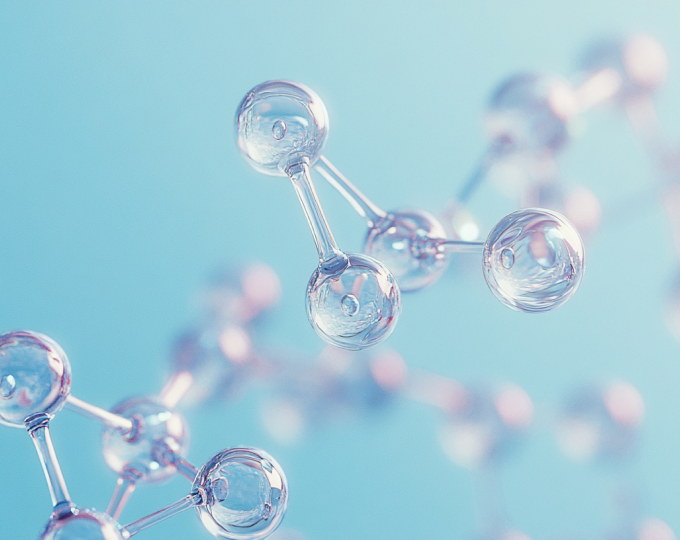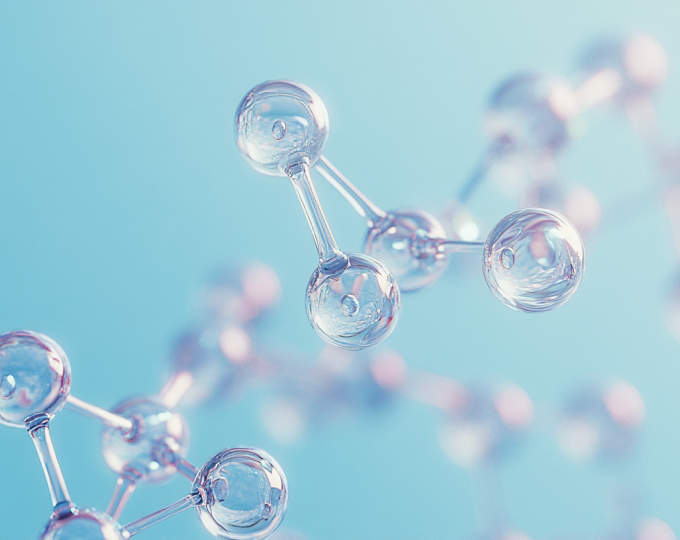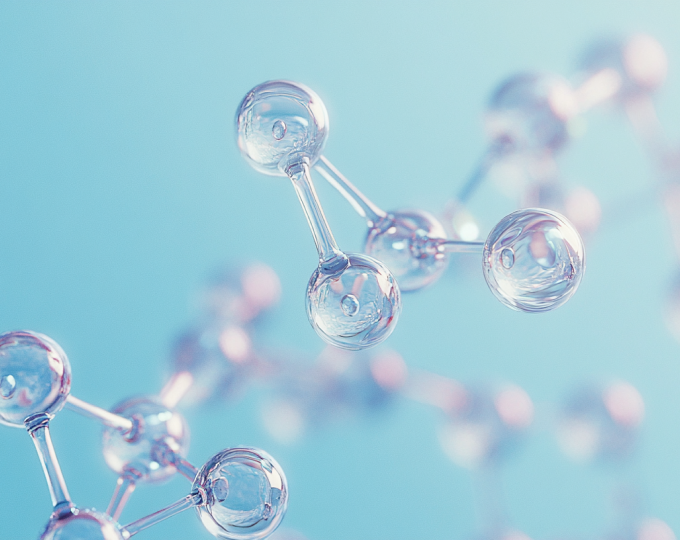Themen dieses Blogartikels:
What is Phenylalanine?
Phenylalanine is an essential amino acid. This means that it must be obtained from food and cannot be synthesized by the body itself.
What are the functions of Phenylalanine?
Phenylalanine is a proteinogenic amino acid, which means that it is used to build proteins. It is also glucogenic and ketogenic, which is why it can be introduced into the citrate cycle to generate energy, but can also be used to synthesize ketone bodies. Together with tyrosine, phenylalanine is also the amino acid from which catecholamines are produced¹. These are adrenaline, noradrenaline and dopamine. Phenylalanine is also involved in melanin synthesis - melanin is the dark pigment of skin and hair.²
What makes Phenylalanine unique?
Phenylalanine is important for the production of stress and performance hormones. Dopamine is one of the most important neurotransmitters of the central nervous system. Among other things, it is part of the reward system, especially the anticipatory reward system, and is also jointly responsible for performance, memory and concentration.³
How much Phenylalanine do you need per day?
The German Nutrition Society (DGE) has not yet issued a general recommendation for the daily intake of phenylalanine. The requirement for adults is probably around 14 mg phenylalanine per kilogram of body weight per day. The requirement is likely to be higher in children and adolescents who are growing, as well as in pregnant and breastfeeding women.⁶
When do you need Phenylalanine most?
The intake of phenylalanine or tyrosine is particularly important in the case of a catecholamine deficiency⁴. The amino acid also proves helpful when there is an increased need for concentration and performance.⁵
How does an Phenylalanine deficiency develop and how does it manifest itself?
Serious health problems such as renal insufficiency, liver disease or cancer can lead to the body not being able to absorb or utilize phenylalanine properly. In addition, people who suffer from stress should keep an eye on their nutrient supply, as protein breakdown can be increased in them. Eating disorders, coeliac disease and Crohn's disease can also promote a deficiency. An undersupply can lead to hormonal imbalances, which can manifest themselves in fatigue and pigmentation disorders, among other things.⁷
What happens if there is an overdose of Phenylalanine?
Anyone who consumes significantly too much phenylalanine over a longer period of time can damage their kidneys⁸. Intake is particularly problematic for people who suffer from the congenital metabolic disorder phenylketonuria: They are unable to metabolize this amino acid due to a missing enzyme and must therefore follow a phenylalanine-restricted diet.⁹
Which foods are particularly high in Phenylalanine?
Phenylalanine is found in many protein-rich foods. These include poultry, dairy products, eggs, cereals, pulses, nuts and soy.
This dictionary entry is based on carefully researched sources:
Bibliography & Sources
- https://viamedici.thieme.de/lernmodul/548977/539501/katecholamine
- https://www.u-helmich.de/bio/lexikon/M/Melanin-Synthese.html
- https://www.spektrum.de/news/auseffekten-von-dopamine-und-dessen-wandels-auf-das-belohnungszentrum/1205455
- https://www.springermedizin.de/emedpedia/detail/lexikon-der-medizinen-laboratoriumsdiagnostik/phenylalanin?epediaDoi=10.1007%2F978-3-662-49054-9_2405
- https://www.st-georg-apotheke-heide.de/gesundheitsbibliothek/index/l-phenylalanin-l-tyrosin/
- https://www.vitalstoff-lexikon.de/Aminosaeuren/Phenylalanin/Zuühr
- https://www.netdoktor.de/medizine/phenylalanin/
- https://www.netdoktor.de/medizine/phenylalanin/
- https://www.msdmanuals.com/de-de/heim/gesundheitsproblems-von-kindern/erbliche-stoffwechselst%C3%B6rungen/phenylketonurie-pku



















